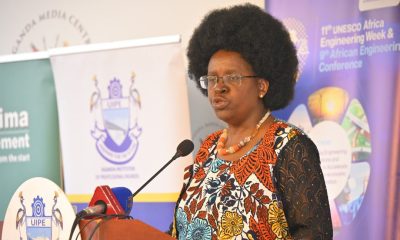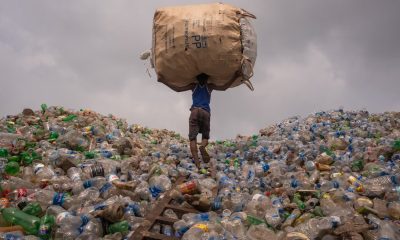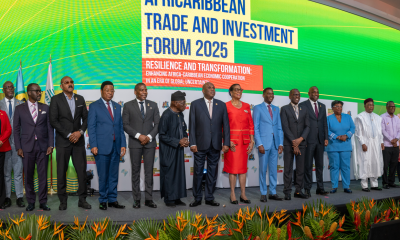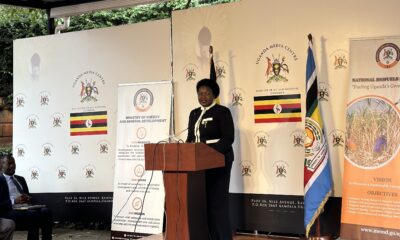human traffickingFeatures
Parliament moves closer to passing GMO bill
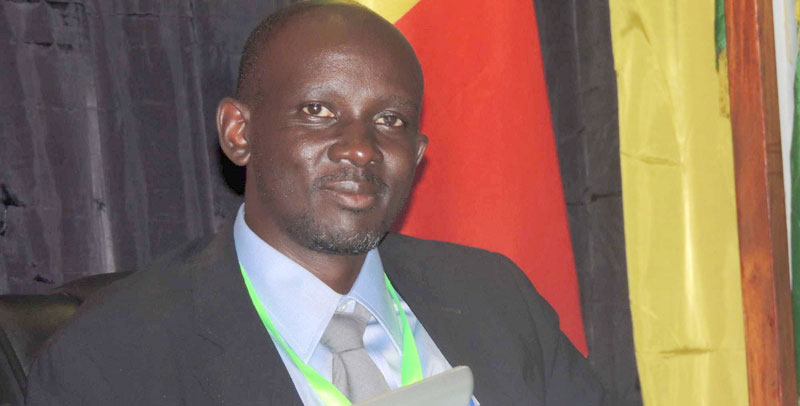
Clet Wandui Masiga scientist and advocate of Bio-technology
It is close to a year since President Museveni referred the Biosafety Act 2017 back to Parliament. Over the past months, the Parliament committee on Science and Technology has been trying to address concerns raised by the President. Clet Wandui Masiga, is a scientist-turned strong advocate of Genetically modified organisms, has spent days in the corridors of Parliament as well as meeting top policy makers trying to find common ground as a way to removing obstacles to the passage of the bill. The Sunrise’s Henry Lutaaya, spoke with him on the status of the bill. Below are excerpts.
Qn. The Speaker of Parliament Rebecca Kadaga had wanted all pending bills to be passed before Parliament went for recess. Still the Parliament failed to consider the GMO bill, and yet it was one of those. What happened?
Parliament is very committed and it is their responsibility to pass bills. The Speaker of Parliament had designated the first session towards bills. The second session would be about Committee reports and the third session would be about budgets.
As their requirement, they had prioritised this Biosafety bill, because it should have been passed within two months (of being returned to Parliament by the President) according to rule 142, regarding all bills that are referred by the President. But since it delayed, (nearly a year since the President withheld his signature of assent) and the report was submitted by the committee on 3rd April, the next step was really to update the house on what was happening.
In the House, the Minister of Science and Technology moved the motion to clarify to the house on the steps they went through to address the issues that the President raised. He actually highlighted the key issues that the President wanted clarification on. Which was actually very good because many people thought that the President was against the bill, which wasn’t the case.
The minister informed the house that they had several cabinet meetings and a committee of cabinet was selected that looked at the issues and agreed on them. The cabinet sub-committee’s report was submitted to the committee on Science and Technology in Parliament.
The S&T committee chair was requested to present the current status. Incidentally the views that the committee presented indicates the concerns of scientists and those opposed to Genetically modified organisms.
Qn. What is your view as a scientist about the report?
Generally the committee’s recommendations were fair. Although there are a few areas that need scientific facts to back them up. For example, when you’re defining social economic facts, you have to base it on clear scientific facts. For example, social economic is clearly defined by the Cartagena Protocol. When you come up with your own definition without background, then you’ve got it wrong, scientifically.
Then we have issues on isolation (distance between GM crops and non-GM). There are things that cannot be scientifically defended. By the time a GMO is approved for release, the Competent National Authority is convinced beyond reasonable doubt that it is safe for humans, the environment and biodiversity. So when you say that it must be isolated, then it beats the scientific fact and you cannot defend it. Once crops are out there in the open, they are bound to mix or cross.
Isolation is only necessary if you’re talking about seed production because then you’re looking for purity. And international standards for seed production specify that they must be isolated to avoid any mixing.
The other thing we find a little out of the way is the need for creation of another seed bank, (as per the President’s request). Because the purpose of any seed bank is to store seed for any seed bearing plant. It can be for local seeds or introduced. And when you say we need a gene bank for indigenous varieties, you’re duplicating efforts because we already have gene banks that are struggling due to lack of funds, or technical capacity to manage them. When you create another gene bank, you are duplicating efforts but also that you’re increasing expenditure unnecessarily.
The other issue we have problem with is the issue of liability for corporations and individuals. The report proposes that individual scientists and farmers can be held individually responsible (for any damage arising from introduction or growing of GMO crops). If the corporation has compensated for any damages, why really go ahead to punish that individual who was working for the same corporation? Isn’t that really double punishment, which by any standard cannot pass the test.
The other thing I find objectionable is the provision that anyone who harms the environment, is liable to imprisonment for life. We have a mother law – the NEMA Act of 1995. This act provides for restoration of the environment in case of damage. You cannot tease out GMOs to have another super law (with harsher punishment). All we need is a reference to the NEMA law on how to deal with damage to the environment not a super law that deals specifically with GMOs. Those are the few contradictions that we see but they could be addressed when the plenary sits.
Qn. Why has the bill then failed to be debated and passed since the clarifications were given. Could there be an invisible powerful hand obstructing it, as feared?
The reason that the Deputy Speaker (who presided over on the house on October 4) gave for postponing debate, was that the House was not properly constituted. He argued that since the bill has been very controversial, the house didn’t have enough time to debate it to the very end in order to exhaust the many contentious issues. So I wouldn’t want to blame anyone. The House had about 184 and we had quorum but the time was not on our side and there were a number of other issues that the House needed to attend to.
Qn. What is the way forward?
As promised by the Speaker, I think this is going to be priority when the next session begins. All we have got to do is to continue providing information that is backed-up by data, hopefully the legislators will see what we’re talking about. Because some of the information is obvious; like why should we have two gene banks. Why should you punish someone twice because there are several precedence laws. Even if you passed it, you could challenge it in the constitutional court. Things to do with damage to the environment. We already have the NEMA Act as the mother law. There is no need to subject someone to life imprisonment in a new law when the mother law provides for restoration in case of damage. It is something that just needs to be put right.
Comments



